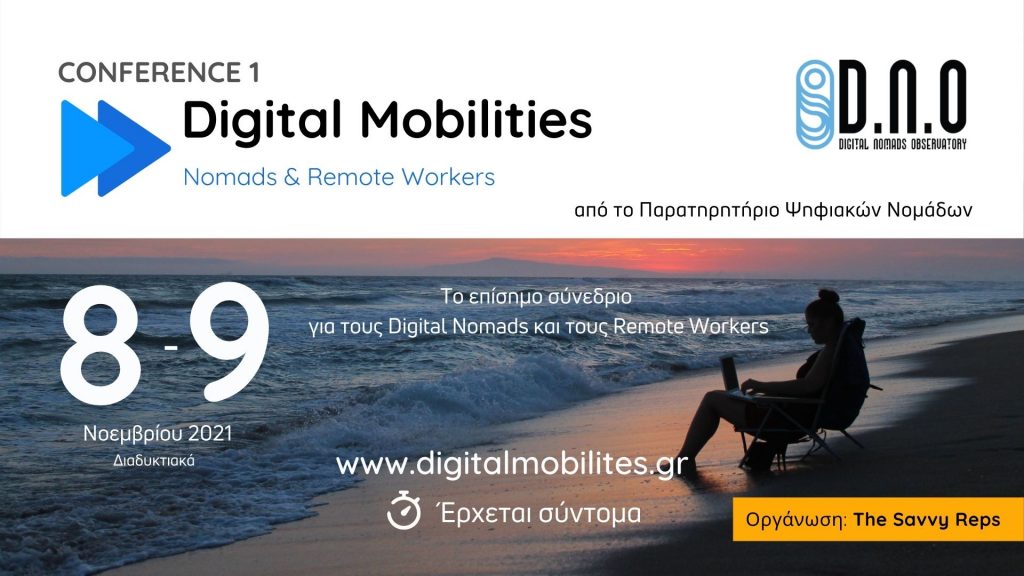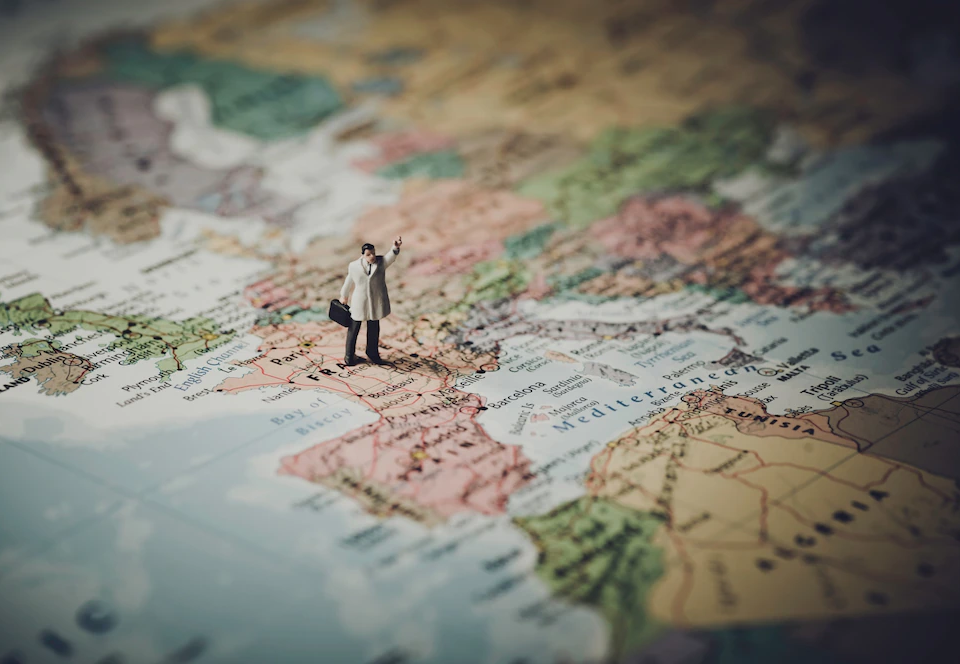
Digital nomad girls: 8 tips to settle into a new destination
September 24, 2021
1st Digital Mobilities Conference from the Digital Nomad Observatory
October 5, 2021When we think of Startup cities, our mind inevitably goes to Silicon Valley. The North American city has been for decades the hub for innovative thinking, the expansion of technology and groundbreaking ideas.
However, with the rise of the ever-expanding digital landscape, comes revolution in the form of cloud technology. No longer physical presence in a building is required especially after the pandemic proved it so. Innovation now can be actualized from any place in the world, tiny or big.
Yet we all desperately want to know where the next hub of innovation will be located. And there is an answer to that, one that digital nomads have realized for many years, way before COVID-19.
That is anywhere that is supported by the internet. Any city has that potential as long as it has understood the importance of creating an inclusive, diverse, and empathetic environment where pioneers will thrive.
Digital nomads to the front
This global tribe can become the heralds of change. They carry with them these values that can be the starting point to unlimited opportunities, innovative strategies, policies and much more.
Digital nomads began experimenting with borderless living and working back in 2010. They built their lives and careers as they travelled from one place to another fostering exciting new ideas. Many cities since then have risen to meet their demands offering incentives to stay like digital nomad visas, community, and financial support.
Initially, these places where smaller and lesser known but were more affordable and offered higher living standards than larger cities.
The number of such destinations grew more with many towns and cities now welcoming digital nomads and vying for their attention. Slowly they’ve transformed into hubs that attract more and more remote workers.
Remote work ecosystems
While larger cities and countries like Dubai, Singapore, and Estonia have been dabbed as new startup cities since the start of the 21st century, the remote worker hubs are quite different. The first focus more on attracting larger companies to be followed by smaller while the hubs on individual remote workers. Then these new hubs can be considered as remote startup cities.
A great example of a remote hub is Bali. The Indonesian Island in the mid-2010s became the number one destination for digital nomads. Due to its unique features namely, the tropical climate, high internet speed connectivity, English Language, co-working spaces, international food options it attracted remote workers from around the world that began experimenting with that type of working.
Lisbon, Kuala Lumpur, and George Town are a few of the cities that have frequently been featured by the Nomad list as hubs for digital nomads. The list only grows bigger with many countries that simplify settlement with working visas. Affordability, close time zone and high internet speed rank among the most important digital nomads’ asks.
Remote work has enabled the spread of innovation and that leads to these hubs becoming powerful centers.

Nomad workers and local communities
Wi-Fi speed, ease of settlement, financial help, workspaces, and English language competence are critical for digital nomads. These are the same values that connect any city with global businesses. However, the community and lifestyle of these hubs play an important factor for digital nomads. How is it living as part of the community?
Then everything is again about affordability. Remote workers that find it difficult to afford their city’s house rents can have a very different way of living in these hubs. That and time zone proximity hits the mark for them.
Looking it from the perspective of these communities we can discover both benefits and drawbacks. Being a digital hub can certainly boost the local economy aided by digital monads spending. It also connects the city to the global economy, attracting more startup companies and potentially creating new job positions within the community.
Communities, though, could become overly dependent on travelers which can live them vulnerable. COVID-19 proved so for communities that were heavily relying on tourism. In addition, the lack of clear and updated border policies can prove problematic causing power imbalance between local and nomad populations and perpetuation of inequality based on archaic notions of birth rights and old systems of wealth and power.
Specialized nomad hubs
With global travel starting up again, industry experts are expecting radical changes. Brian Chesky, the CEO of Airbnb in an interview at Monocle said that the traveler habits are changing. While in the past they spend a few days visiting a city like Rome or New York, now they rent out Airbnbs for months.
There’s a lot to learn from that. More importantly, what these cities have to do to attract long-renting individuals that are remote working. What could be beneficial is specializing. A place is desired when is considered the top in specific industry.
According to the creator of Nomad list leisure, community-based and interest destinations are the future of travel. Someone who loves Anime is better placed living near Tokyo as Pieter Level explains.
Specialization in a field helps bring relevant people and increase reputation. This in return will bring in more and more people. Tokyo is the perfect city to showcase that. Dubbed by many as one of the most technologically advanced in robotics cities to live in the world it attracts millions that want to experience that. That is result of the marketing, sales, and local government to illustrate and market the city as that, while delivering on the promise with cutting-edge robotics innovation.
Startup cities offer business and tech culture. Nomad hubs specialize further with creating a niche Community. Travelers visit Tokyo not because of its general inclination towards innovative technology, but because of its robotics specialization. Visitors prefer to go to a place that offer niche experiences rather than these that offer everything but nothing really well. For digital nomads travelling is more about the local community experiences and lifestyle than flashy monuments.
The cities that aim to attract founders of specific fields can be a great start to creating these niche hubs. These cities can focus in these niches and evolve offering experiences tailored these specific disciples and welcome likeminded visitors, ideas and innovation.
Balance is key
For most governments when creating new policies for digital nomads, the most important factor is balance between opportunity and risk. This balance requires the right incentives for both nomads and local communities.
Understanding what is needed from both ends is vital in creating programs and long-lasting partnerships beneficial to all. Working visas are a step towards the right direction, often requiring the remote workers to work in co-working spaces and share their knowledge and expertise with the community. It’s a start towards close and important collaboration between countries, economies across the globe.
Despite the distance of the digital world and what it entails for remote workers, when they travel what keeps the coming back is human connection. It is the experiences they share with the people they meet in the place they visit. Whether permanent residents or not the place they visit will be considered on the relationships and interactions. Nomad hubs thrive on social connection and not on wealth levels.
What matters is having experiences that can be shared, recommended, and continued. It is therefore in the interest of both locals and nomads to assure this continuity and improvement of life structure in nomad hub.
To conclude, the most innovative and craved for startup cities of the future will be these built around the values of a remote economy. These will be hubs that combine the remoteness of a work life with the closeness on intimated human relationships and experiences.
Writen by Dimitrios Alexopoulos Tsoras






